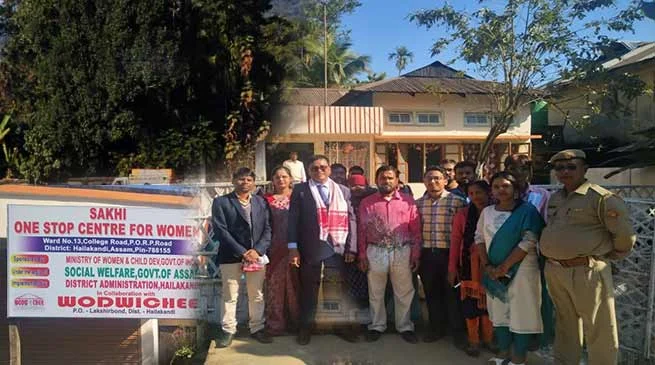Women’s rights are an essential aspect of social justice and equality. In India, particularly in Assam, women face various challenges such as domestic violence, gender discrimination, and lack of access to essential services. To address these issues, multiple organizations work together to provide support, resources, and legal aid to empower women. Among them, Non-Governmental Organizations (NGOs) and One Stop Centres (OSCs) play a crucial role in ensuring that women receive the help they need to reclaim their rights and dignity.
NGOs in Assam are dedicated to providing shelter, legal assistance, counseling, and financial aid to women facing difficulties. These organizations work at the grassroots level to reach out to women in distress, educate them about their rights, and help them become self-reliant. Many NGOs collaborate with government agencies and international bodies to strengthen their impact and extend their services across the state.
One Stop Centres (OSCs) are government-backed initiatives aimed at providing immediate support to women who are victims of violence or abuse. These centers work as a single-point contact for multiple services, including legal aid, medical assistance, psychological support, and temporary shelter. By working together, NGOs and OSC Assam create a robust network that ensures comprehensive support for women and helps them lead independent and empowered lives.

Role of NGOs in Supporting Women’s Rights in Assam
1. Legal Aid and Advocacy
NGOs in Assam play a vital role in providing legal aid to women who face issues such as domestic violence, workplace harassment, and dowry-related crimes. Many organizations offer free legal counseling, representation in court, and assistance in filing police complaints. They also work on advocacy campaigns to push for stronger laws that protect women from gender-based violence.
2. Shelter and Rehabilitation Services
Many NGOs run shelters for women who have been abandoned, abused, or exploited. These shelters provide a safe space where women can stay temporarily while they rebuild their lives. Rehabilitation programs focus on skill development, vocational training, and psychological counseling to help women become self-sufficient.
3. Awareness and Education
NGOs actively organize awareness campaigns to educate women about their rights. Through workshops, seminars, and community meetings, they inform women about laws related to domestic violence, sexual harassment, and gender equality. They also conduct educational programs for young girls to ensure they grow up in a supportive and informed environment.
4. Economic Empowerment
Economic independence is key to women’s empowerment. Many NGOs in Assam run self-help groups (SHGs), microfinance programs, and skill development initiatives to help women become financially self-reliant. They provide training in handicrafts, tailoring, agriculture, and other income-generating activities.
One Stop Centres (OSC) and Their Role in Women’s Protection
1. Immediate Crisis Support
OSCs provide immediate support to women facing violence or abuse. Any woman in distress can approach an OSC for help, and they will receive medical assistance, police intervention, and legal aid under one roof. This eliminates the need for women to visit multiple agencies for support.
2. Psychological and Medical Assistance
Many women facing abuse suffer from trauma, anxiety, and depression. OSCs offer counseling services by trained psychologists and medical professionals. They ensure that victims receive proper medical treatment and mental health support to recover from their trauma.
3. Legal and Police Assistance
OSCs work closely with law enforcement agencies to ensure that cases of violence and harassment are dealt with swiftly. They provide legal advisors to help women understand their rights and guide them through the legal procedures required to seek justice.
4. Coordination with NGOs for Long-Term Support
While OSCs provide immediate assistance, NGOs offer long-term support to help women regain control of their lives. OSCs often collaborate with NGOs for rehabilitation programs, job placement assistance, and financial support. This partnership ensures that women receive continuous help even after their immediate crisis is resolved.
How NGOs and OSC Assam Work Together
1. Joint Awareness Programs
Both NGOs and OSCs organize joint awareness campaigns to educate communities about women’s rights. These programs help change societal attitudes towards gender equality and encourage women to seek help when needed.
2. Referral and Support System
OSCs refer women to NGOs for extended support, such as employment training, psychological counseling, and shelter services. NGOs, in turn, direct women in distress to OSCs for immediate legal and medical aid.
3. Government and NGO Collaboration
The Assam government collaborates with various NGOs to strengthen the functioning of OSCs. This partnership ensures that resources, funding, and expertise are utilized effectively to provide maximum support to women in need.